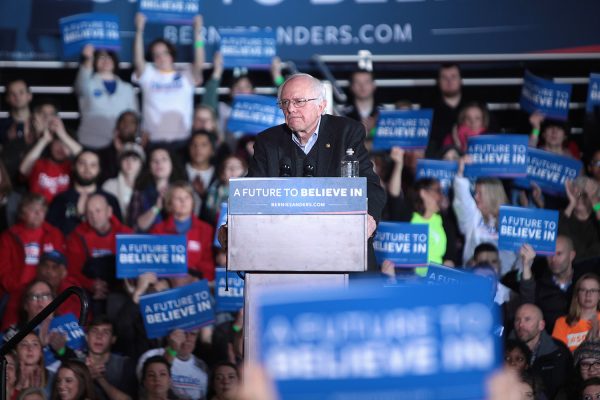
Having placed first in both Iowa and New Hampshire, Bernie Sanders can expect stronger opposition from moderate Democrats who fear he would lose to Donald Trump. There are already calls to unite behind a single, center-left presidential candidate. Those calls will grow leader.
This overlearns the lesson of 2016. Trump was able to win the Republican nomination that year with plurality support against several center-right candidates. But most Republican contests are winner-takes-all. The Democrats award their delegates — who will elect the nominee at a convention in July — proportionally. If several centrist and center-left candidates remain in the race, the most likely outcome is not a Sanders nomination but a brokered convention, where the moderates would need to join forces.
Weak against Trump
Commentators from the left to the right, including Jonathan Chait, David Frum, Richard North Patterson and William Saletan, have argued Sanders is Trump’s dream candidate. A self-declared socialist who wants to nationalize health insurance, decriminalize illegal border crossings and allow prisoners to vote might just persuade the type of college-educated suburban voters — especially women — who voted Republican as recently as 2012 to come back to the party.
Former vice president Joe Biden has warned that, although Sanders could win the presidency, he would hurt Democrats in competitive congressional and Senate elections.
Pete Buttigieg, the former mayor of South Bend, Indiana, who tied with Sanders in Iowa, has criticized the Vermonter’s “my way or the high way” style of politics.
James Carville, the architect of Bill Clinton’s 1992 election victory, warns that Sanders’ “ideological cult […] alienates large swaths of America.”
I think “cult” is a little harsh, but I agree with the sentiment.
So do Republicans. That’s why they’re plotting to infiltrate the Democratic primary in South Carolina in two weeks and vote for Sanders.
But it’s too soon to freak out. Sanders has yet to get over 26 percent support anywhere. He has yet to expand his coalition beyond white college students and graduates.
Backfire
If low-polling candidates did quit, and moderates threw their weight behind, say, Buttigieg or Michael Bloomberg, it could backfire. In a two-person race, Sanders might get more support. He has only 26 percent now, but he won 43 percent against Hillary Clinton in 2016.
Neither party has had a contested convention, in which no candidate enters with a majority of the delegates, in decades, but FiveThirtyEight puts the odds at one-in-four — below an outright win for Sanders, at one-in-two, but ahead of all the other candidates winning on their own.
